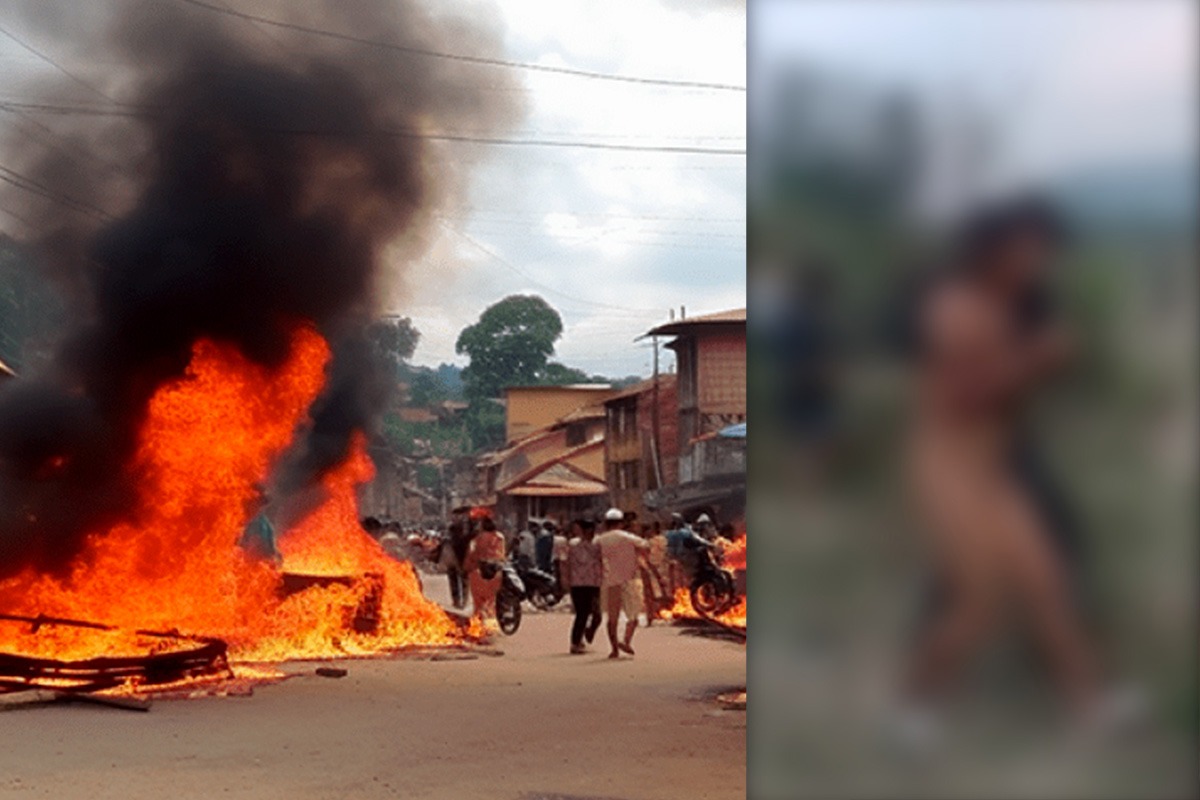The northeastern state of Manipur, known for its diverse ethnic communities and picturesque landscapes, has been grappling with a deep-rooted conflict between the Meitei and Kuki communities. The recent outbreak of violence in 2023 has brought this simmering issue into the national spotlight, raising concerns about the complexities of ethnic relations in the region.
The seeds of tension were sown in February 2023 when the Manipur state government embarked on an eviction drive to remove illegal immigrants from Myanmar residing in state-owned forest reserves. The move was intended to reclaim the forest land and crack down on illegal activities, including poppy cultivation, which has been linked to the region’s drug syndicate.
However, the eviction drive was met with strong opposition from tribal groups, predominantly the Kukis, who saw it as a direct assault on their way of life and a means to displace them from their ancestral lands. Accusations of being anti-tribal surfaced, with the Kuki population alleging that the eviction drive was a pretext used by the Meitei community to drive them away from the hills and assert dominance over the region.
ALSO READ: Deadlock continues in Parliament over Manipur issue
The simmering conflict gained further momentum with the ongoing political crisis in neighboring Myanmar. Following the military coup in Myanmar in 2021, Manipur witnessed an influx of refugees, including the Chin people, who belong to the same ethnic group as the Kukis. The presence of these refugees added to the insecurity among the local population, leading to heightened mistrust between the Meiteis and Kukis.
On May 3, 2023, tensions reached a boiling point, resulting in violence and arson in various districts of Manipur. The trigger for this violent outburst was the All Tribal Students Union Manipur (ATSUM) holding a Solidarity March opposing the inclusion of the Meitei community in the Scheduled Tribes (STs) list, following a Manipur High Court order.
The demographics of Manipur play a significant role in the conflict. The Meitei community constitutes about 53% of the state’s population and predominantly resides in the central Imphal Valley. The Land Reform Act of Manipur prohibits Meiteis from settling in the hill areas without the permission of local district councils. On the other hand, the tribal population, consisting mainly of Kukis and Nagas, forms approximately 40% of the state’s population and is allowed to settle in the reserved hill regions.
ALSO READ: TMC rides Oppenheimer frenzy, pins blame of Manipur violence on PM in poster
This demarcation of settlement areas has led to deep-rooted grievances and mistrust between the two communities. The Meiteis feel marginalized and constrained by the restrictions on their movement, while the Kukis perceive the encroachment of Meitei dominance in their traditional territories.
Recent incidents of violence have only exacerbated the situation. A disturbing video from May 4 showed a large mob parading two naked Kuki women in Kangpokpi district. The victims’ relative filed a police complaint, alleging that a mob of 900 to 1,000 people raided a village, leading to the brutal assault and killing of villagers who attempted to protect the victims.
The Manipur government’s handling of the situation has come under scrutiny. Union Home Minister Amit Shah has announced that the investigation into the sexual assault of Kuki women will be handed over to the Central Bureau of Investigation (CBI). There have also been efforts to engage both communities in talks to find a peaceful resolution to the conflict.
In the midst of this complex situation, the central government has initiated steps to address the concerns of the Meitei population regarding illegal immigration from Myanmar. Amit Shah announced an operation to capture biometrics of all those entering from Myanmar and include them in a “negative Aadhar” database. Work is underway for the construction of barbed wire fencing along the border to strengthen security measures.
ALSO READ: NHRC issues notice to Manipur CS, DGP over ghastly gang rape incident
The Parliament’s Monsoon Session saw heated debates on the Manipur situation, with the government and the Opposition differing on the format of discussion. While the Opposition sought a discussion under Rule 267 to suspend all listed businesses and address the issue urgently, the government proposed a discussion under Rule 176, limiting it to a specific timeframe. However, the government’s agreement to a short-duration discussion indicates its willingness to address the pressing concerns raised by the Opposition.
However, attributing blame solely to one entity is a complex task. While some aspects of the issue are politically driven, it primarily revolves around national security concerns, given Manipur’s status as a border state. The immediate focus should be on de-escalating the situation and holding those responsible for the disturbing Manipur viral video accountable. In response to this incident, the Centre has initiated a CBI probe at the request of the Manipur government. Additionally, they have sought to shift the case outside the state to ensure a fair trial and expedited completion within six months.
The path to achieving lasting peace in Manipur is undoubtedly challenging and requires a comprehensive approach. Constructive dialogue between all stakeholders, addressing the grievances of both communities, and implementing inclusive policies that honor the diverse cultural identities of ethnic groups are vital steps towards reconciliation.

